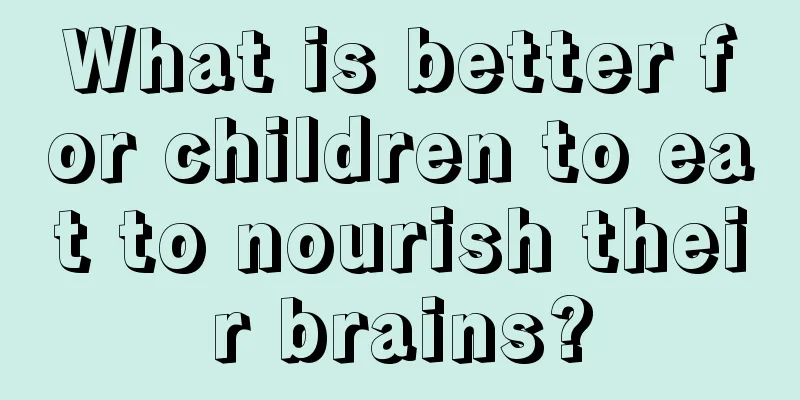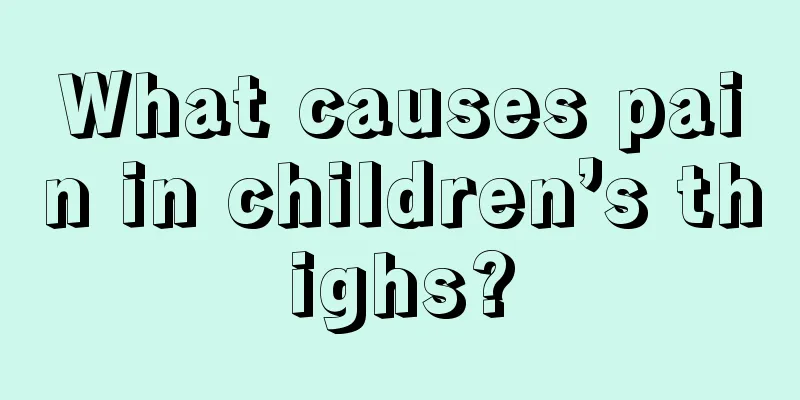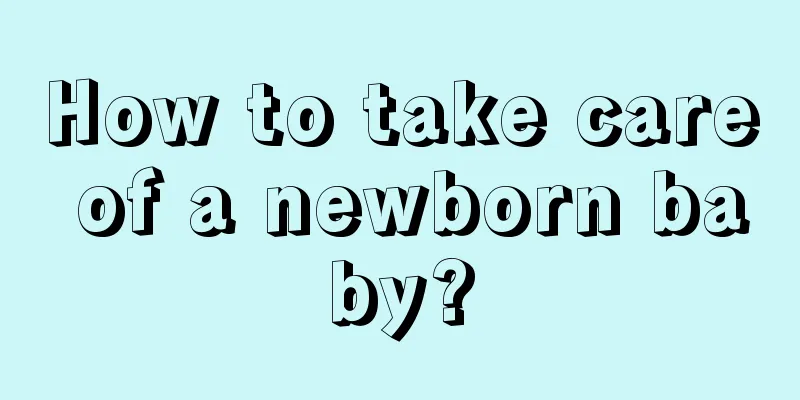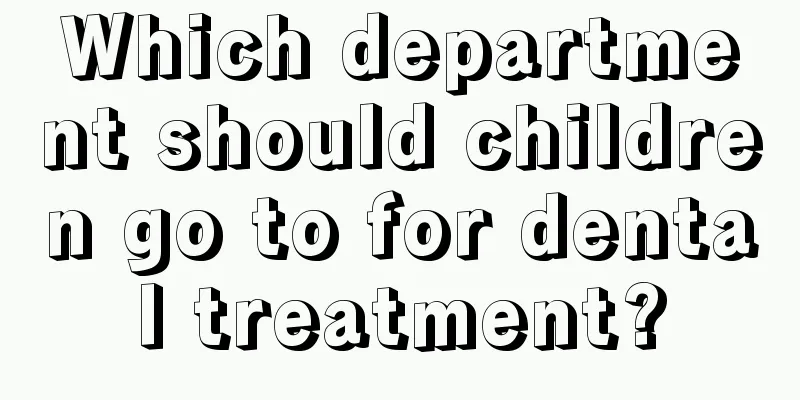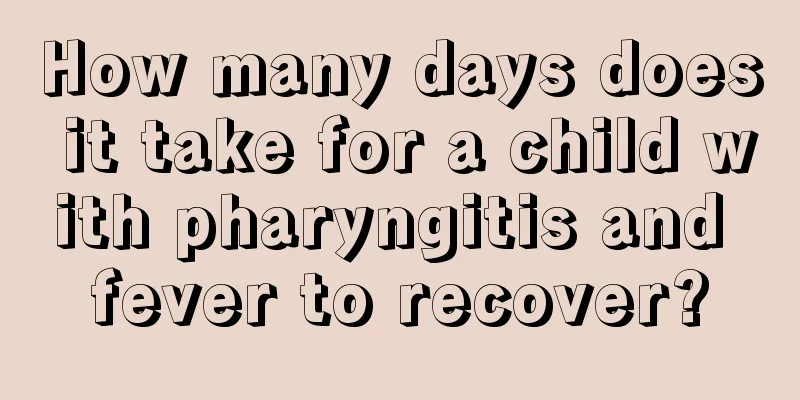What should I do if my child suddenly has a fever in the middle of the night?

|
Babies are prone to fever in summer. Because the weather is very hot, many babies are often sweating and their faces are red. Parents think it is caused by the heat. As long as the child does not want to eat and is too lazy to move, you should suspect whether he has a fever and measure his temperature with a thermometer. Once he has a fever, you should pay attention and find out the cause in time. So, what causes babies to have fever in summer? What should I do if my baby has a fever in summer? Why are babies prone to fever in summer? Babies have weak constitutions and poor resistance, so they are more likely to get sick in the summer. Doctors point out that the weather is hot in summer, bacteria are more active, and babies are more vulnerable to attack. In addition, when it is hot, babies are prone to poor appetite and sleep, which will also affect their resistance. Moreover, some babies like to kick off the quilt when they sleep. The temperature drops in the second half of the night, so the baby is likely to catch a cold. Therefore, parents are advised not to let the baby wear thick pajamas to sleep. It is best to let the baby wear small shorts or vests to sleep. The baby will sleep more soundly and will be less likely to kick off the quilt. In addition, babies need special care after exercise because they sweat a lot. Be sure to wipe off the sweat, otherwise they are likely to catch a cold or have a fever. The most common reason for a baby to suddenly have a high fever in summer is an infectious disease. The three most common infectious diseases in summer are: ① Epidemic Japanese encephalitis. One of the most dangerous infectious diseases in summer, the pathogen is a neurotropic virus, which is transmitted through mosquito bites and blood sucking, mostly children under 10 years old; ②Acute toxic bacillary dysentery. Bacillary dysentery is the most common intestinal infectious disease in summer. The pathogen is Shigella dysenteriae, and the main symptoms are fever, abdominal pain, diarrhea, and bloody stools. There is a type of bacillary dysentery called toxic bacillary dysentery, which is more common in children aged 2-7 years old; ③Typhoid fever. It is an acute intestinal infectious disease caused by Salmonella typhi, which often causes local epidemics due to water pollution. The main symptoms of typhoid fever include persistent high fever, apathetic expression, slow reaction, as well as hepatosplenomegaly, roseola on the skin, abdominal distension and diarrhea. In summer and autumn, if a child has a fever that lasts for more than a week, the child should be examined by a doctor to see if it is caused by typhoid fever. But if your baby just has a common fever in summer, the most common cause is upper respiratory tract infection. This type of fever usually presents symptoms such as sneezing, chills, coughing, and headache. So what should you do if your baby has a fever in summer? Generally speaking, if bacteria cause a baby's fever in the summer, the treatment effect will be very good as long as the right antibiotics are chosen. If the fever is caused by a viral infection, there is currently no specific medicine. You can take Virus Ling, Isatis Root Granules, Honeysuckle, etc. The fever caused by viral infection will subside on its own after a certain period of time. You should not try to treat the fever by all means and use all kinds of medicine at once. Older children can take medicine, but they should only take it when the temperature is above 38.5℃. If the child just has a slight fever and no other discomfort, there is no need to lower the temperature in a short period of time, especially when the cause of the fever has not been determined. Because raising body temperature is also an effective way for the human body to resist the invasion of foreign bacteria and viruses, and every time the body temperature rises, the resistance increases accordingly. Therefore, simply lowering the temperature without finding the root cause of the disease will not only be of no benefit to the child, but may also reduce the body's resistance. If a child has a high fever above 39 degrees Celsius, pneumonia should be suspected. If the child has a severe cough and persistent high fever, and in severe cases, convulsions may occur, the child should be sent to the hospital for treatment immediately. It is worth noting that if the baby has a fever in summer, if the temperature is not high, below 39 degrees Celsius, parents can handle it at home. Let your child get more sleep and drink more water. Control their body temperature and don't let them have too high a fever. Children under 1 month old cannot take antipyretics and can only use physical cooling methods. Do not use medicines indiscriminately to avoid affecting the child's physical development. |
<<: What should I do if my child has a fever and feels cold?
>>: What foods can stimulate the appetite and help digestion in children?
Recommend
The efficacy of blood sugar syrup for children
Children's resistance is often not as strong ...
Does loud noise have any effect on babies?
After having a baby, most families are usually ve...
What are the methods of making beef porridge for babies?
Beef is rich in protein and a variety of trace el...
How to cure a child's stuttering?
I believe that many parents want to know how to t...
Pediatric variant asthma
The probability of children getting asthma is als...
What should children pay attention to before and after tooth extraction?
When children have their teeth extracted, local t...
What is the reason for my baby’s sudden loss of appetite?
I believe that many mothers in life will encounte...
What is the reason for the baby's heavy sweat hair?
Everyone knows that no matter which hair in the b...
How to prevent neonatal herpes
Herpes is a common disease in newborns. This is b...
What are the developmental indicators for a two and a half year old baby?
Nowadays, many mothers are very worried about the...
Why does my baby sweat when he has a cold?
In life, it is very common for babies to catch co...
What's going on when the baby has a fever and convulsions?
Many people treat their children as treasures and...
2-year-old child walking unsteadily
If you feel that your two-year-old child is unste...
What to do if your child is irritable and angry? Mom has a trick
Many children have a bad temper and get angry eas...
Urticaria on the child
There is no doubt that urticaria is a common skin...



